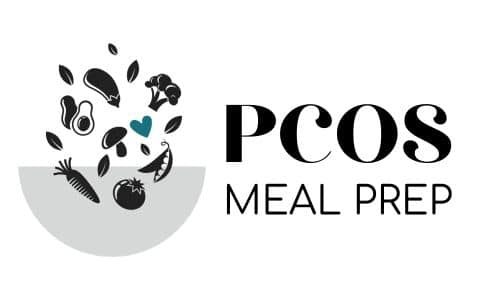Matcha is a great beverage choice for individuals with PCOS. It is a nutrient rich tea that is the perfect addition to your food-as-medicine approach to treating PCOS.
As a Registered Dietitian that specializes in PCOS, I love talking about the research so let’s dive into the research on the health benefits of Matcha and why it can help improve your PCOS symptoms.
Sometimes knowing the “why” behind something, provides that extra little nudge in making dietary changes.
Then I’ll show you how you can incorporate it into your PCOS diet, because if we can’t make it delicious, what’s the point? 🙂
*This post contains affiliate links and I may earn a small commission when you click on the links with no additional cost to you. You can read my full disclaimer policy here.
✅ Key Takeaways
-Matcha is packed with antioxidants, particularly catechins like EGCG, which have been linked to reduced inflammation and improved metabolic health.
-Emerging research suggests that matcha may support hormone balance and help reduce stress levels, thanks to its amino acid content.
-When incorporating matcha into your diet, opt for high-quality ceremonial grade matcha and try delicious recipes like matcha lattes, smoothies, and overnight oats.
Table of contents
- Understanding PCOS and Its Dietary Implications:
- Nutritional Strategies for PCOS:
- What is Matcha?
- Matcha Components and Antioxidants:
- Matcha and Metabolic Health for PCOS:
- Impact on Hormonal Health
- Stress Reduction and Cortisol Regulation
- Tips for Incorporating Matcha into a PCOS-Friendly Diet
- Final thoughts…
Understanding PCOS and Its Dietary Implications:
Polycystic Ovary Syndrome (PCOS) is more than just a hormonal hiccup—it’s a complex endocrine and metabolic condition that can wreak havoc on various aspects of health. From irregular periods to insulin resistance, PCOS presents a unique set of challenges (1)
Nutrition plays a critical role in managing PCOS symptoms because it addresses root issues associated with PCOS symptoms like insulin resistance, inflammation and gut health.
Nutritional Strategies for PCOS:
When it comes to managing PCOS, what you put on your plate matters big time. Research suggests that dietary modifications can play a pivotal role in improving PCOS symptoms (2).
Including foods rich in antioxidants, phytochemicals and polyphenols help reduce inflammation (3).
If you want to learn more about what to eat for PCOS to help reduce inflammation, check out this post or this anti-inflammatory meal plan.
What is Matcha?
Let’s start with the basics—what exactly is matcha, and why is it causing such a stir in the wellness world?
Matcha is a finely ground powder made from specially grown and processed green tea leaves. Unlike traditional green tea, where the leaves are steeped and then discarded, matcha involves consuming the whole leaf, which is why it’s considered a potent source of nutrients and antioxidants.

Matcha Components and Antioxidants:
Get ready to geek out over antioxidants! Matcha is packed with ’em, including the superstar EGCG (4).
Matcha is loaded with antioxidants, particularly catechins, which are natural compounds known for their health-promoting properties.
The most abundant and potent catechin in matcha is epigallocatechin gallate (EGCG), a powerful antioxidant that has been linked to various health benefits, including reduced inflammation and improved heart health (4).
Matcha and Metabolic Health for PCOS:
Several studies have suggested that matcha may have a positive impact on metabolic health, particularly in relation to insulin sensitivity and glucose metabolism.
One study found that consuming matcha led to significantly lower levels of fasting glucose and insulin resistance compared to a control group (5).
Impact on Hormonal Health
Maintaining hormonal balance is crucial for managing PCOS symptoms, and emerging research suggests that matcha may play a role in supporting hormone regulation.
In one clinical trial, researchers found that consumption of green tea in overweight and obese individuals with PCOS led to weight loss, decreased fasting insulin levels and decreased free testosterone levels (6).
Stress Reduction and Cortisol Regulation
Chronic stress and elevated cortisol levels can exacerbate PCOS symptoms, but matcha may offer some relief.
Matcha contains an amino acid called L-theanine, which has been shown to promote relaxation and reduce stress and anxiety levels (7).
Additionally, L-theanine may help regulate cortisol levels, preventing them from spiking excessively in response to stress (8).
Tips for Incorporating Matcha into a PCOS-Friendly Diet
Choosing Quality Matcha
Not all matcha is created equal—learn how to pick the good stuff from the not-so-good stuff.
- When selecting matcha, opt for varieties labeled as “ceremonial grade” or “premium grade,” as these are typically higher in quality and flavor.
- Look for vibrant green color and a smooth, finely ground texture, which indicate freshness and superior taste.
- Consider purchasing organic matcha to minimize exposure to pesticides and other contaminants.
- Check the origin of the matcha and opt for products sourced from reputable regions known for producing high-quality tea leaves, such as Japan’s Uji or Nishio regions.

Matcha Recipes for PCOS
Ready to whip up some matcha magic? Here are a few tasty ideas to get you started:
- Matcha Latte: Swap out your morning coffee for a creamy matcha latte. Simply whisk matcha powder with hot water, then add your favorite milk and a touch of sweetener if desired.
- Matcha Smoothie: Blend matcha powder with spinach, banana, almond milk, and a scoop of protein powder for a nutrient-packed breakfast or snack.
- Matcha Overnight Oats: Mix matcha powder into your overnight oats for a vibrant and energizing morning meal. Top with fresh berries and nuts for added crunch.
- Matcha Chia Pudding: Combine matcha powder with coconut milk, collagen peptides and chia seeds for a delicious and filling pudding. Let it sit in the fridge overnight, then enjoy it topped with sliced fruit.
- Matcha Energy Bites: Roll oats, almond butter, hemp seeds, honey, and matcha powder into bite-sized balls for a convenient and nutritious snack on the go.
What about caffeine?
Concerned about caffeine? Fear not! You don’t have to eliminate caffeine completely if you have PCOS.
While matcha contains more caffeine than traditional green tea, the caffeine plays a critical role in the antioxidant potential of the beverage. It helps to reduce persistent oxidative stress and reduce the risk free radical-mediated disease (9).
You can still enjoy matcha with peace of mind. Consider opting for ceremonial grade matcha, which tends to have lower caffeine levels compared to culinary grade varieties.
Additionally, you can explore caffeine-free alternatives like decaffeinated matcha or matcha blends with other calming herbs like chamomile or lavender
Recommend Brands
- Naoki Matcha Superior Ceremonial Blend – Authentic Japanese First Harvest Ceremonial Grade Matcha Green Tea Powder from Uji, Kyoto
Matcha Whisks
Final thoughts…
Well, there you have it, folks! Matcha might just be the PCOS-friendly sip you’ve been searching for. But as always, chat with your doc before making any major dietary changes. Cheers to your health, and happy sipping!
Helpful articles or freebies you may like…
- FREE 5-Day PCOS Nutrition Course– Balance Your Plate for Happy Hormones




